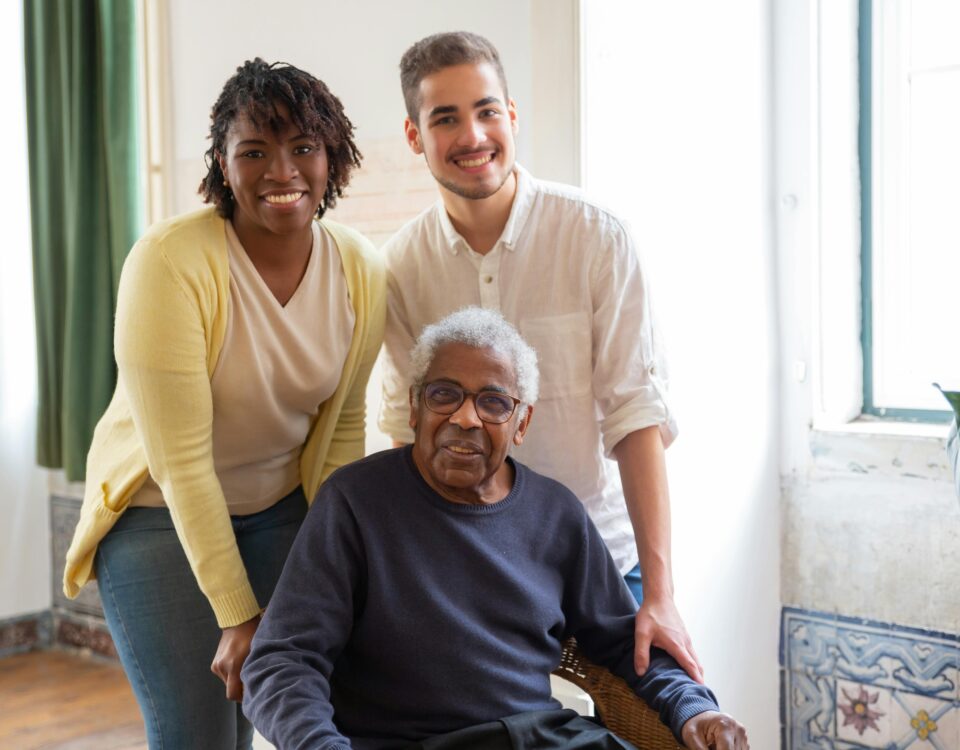You can’t always be there. But we can.
Social Media For Seniors: A Guide to Connecting Safely Online

What Are the Warning Signs of a Heart Attack?
February 16, 2018
Getting Your Home Ready For In-Home Assistance: Our Quick Guide
September 24, 2019Social Media For Seniors: A Guide to Connecting Safely Online

It’s safe to say, social networking was not developed with seniors as the target audience. After all, this is a generation that did not grow up with computers and, for many, a lack of tech-savvy abilities and instruction for navigating the sites was an obstacle to using social media for seniors. So with the advent of companies like Myspace and LinkedIn in the early 2000s, it wasn’t hard to assume they were, by and large, tools for a younger generation. This is especially the case since much of the content and functionality were geared towards young people. With the introduction of Facebook and similar sites later that decade, however, it was becoming clear that this phenomenon was not only here to stay, but very much intended for everyone. In fact, seniors are one of the fastest-growing groups of users on social media today.
Social media for seniors can often be challenging though. When you first log on to Facebook or any other site, understanding the interface, all the options, and contending with threats to your privacy might be incredibly overwhelming. While it might seem daunting at first, there are a few tips to keep in mind to ensure that it is a safe and fun experience connecting (or re-connecting) with friends and family.
Always Consider Privacy
When Facebook claims that it connects people around the world, it certainly means it. For seniors on social media, it is important to know that joining one of these platforms can expose your online activity, whether to online visitors or various companies or apps that collect your information. Some people know the risks and are fine with this, making their accounts completely public. Just beware that whatever is posted with a public setting is available for people around the globe to see. Fortunately, all social media sites have settings that allow you to change your level of privacy. On some sites, you’re even able to customize which of the friends you have online are able to see what you post.
Keep Your Friends Close!
It’s no secret that maintaining healthy relationships promotes a sense of well-being, especially as we age and are at risk of becoming more isolated. That doesn’t mean everyone online is someone to be friends with, however. Keep in mind, sites will only connect you with individuals that you have added as a “friend,” or “followed.” When faced with concerns for privacy, it’s not a good idea to add people that you don’t know. This can lead to undue harassment, or potential scamming. If an online friend request makes you uncomfortable, you can simply ignore or delete it, depending on the platform. Deciphering who or what to trust is one of the hardest parts of teaching social media to seniors. This is particularly true since it may be difficult to know what aspects of a social site are regulated. Companies do monitor for issues but plenty can slip through the cracks.
Watch Out for Scammers
Unfortunately, scammers and cyber-criminals are some of the biggest threats when it comes to social media for seniors since more vulnerable populations are usually their biggest targets. Sometimes there isn’t even anything material for these online users to gain, they simply want to engage in bullying and harassment. This is why teaching social media to seniors should also include information about how to recognize illegitimate language, websites or links online. Not everything should be assumed safe and there are signs to look out for when something could compromise your online security.
Having said that, the most important thing to remember about information you are presented online is that absolutely no one from any official site, business, or agency will ever contact you over social media to request your personal information. There is never any reason to give out your address, card number, or social security number to anyone.
Have Fun
No matter your age, precautions should be taken when networking online. At the end of the day though, social media is for seniors as much as it is for anyone else. It is meant to be a fun way to interact with the people we are closest to or to nurture new, deeper relationships. If it seems too difficult to understand, keep in mind that no one learns these programs overnight – not even the techiest of grandchildren. Thankfully, there are resources available to teach social media to seniors. Check out your local library, community college or even an online tutorial. It’s worth taking the time to learn since it’s a great way to build a sense of community, to foster relationships and get involved. Have fun with it!

